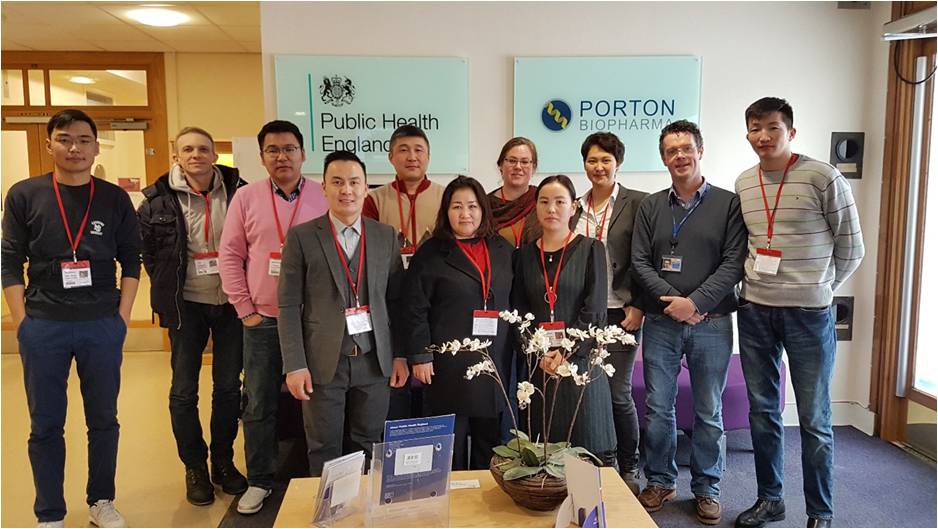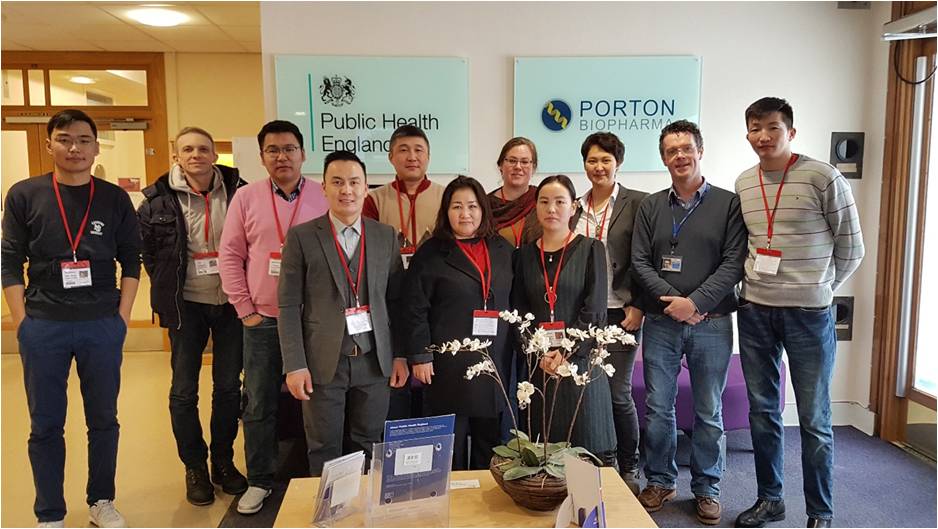Mongolian and Kazakh Scientists and Engineers receive training from EU CBRN CoE Project 53 as Biosafety Cabinet Field Certifiers and become NSF accredited

 Protective control measures that are poorly implemented or maintained are a recognised source of lab-acquired infections. Out of date and non-serviced laboratory equipment can put laboratory users at risk of infection. Faulty microbiological biosafety cabinets are of particular concern as they may expose laboratory users to aerosolised pathogens.
Protective control measures that are poorly implemented or maintained are a recognised source of lab-acquired infections. Out of date and non-serviced laboratory equipment can put laboratory users at risk of infection. Faulty microbiological biosafety cabinets are of particular concern as they may expose laboratory users to aerosolised pathogens.
As part of the EU funded CBRN Centres of Excellence Project 53 (P53) “Strengthening National Legal Framework and Provision of Specialized Training on Bio-Safety and Bio-Security in Central Asian Countries”, Public Health England’s (PHE) Novel and Dangerous Pathogens (NADP) training team, with support from the Biosafety team, delivered an innovative two week Biosafety Cabinet Field Certifier course, with independent assessment and accreditation of trainees by the US Biosafety Standards organisation NSF International.
This is the first NSF recognised Biosafety Cabinet Field Certifier Accreditation Course to be conducted in Europe, with the NADP Training lab at Porton Down being the first NSF recognised UK/EU site providing this training.
In this first course, six Mongolian and two Kazakh laboratory scientists and engineers, completed one week of intensive hands-on training followed by one week being independently assessed by an NSF Proctor. The trainings were based to meet the criteria of biosafety cabinet field tests, as outlined in the NSF/ANSI 49 and EN12469 standards. Trainings covering this content have previously been provided in Central Asia by other agencies with less successful results. To ensure that the selection of suitable trainees, Prof. Christopher Logue (PHE), Key Expert in Biosafety and Training for the EU CBRN CoE Project 53, worked closely with Mongolian and Kazakh partners, Ms. Naranchimeg Bagdai and Prof Andrey Dmitrovskiy, respectively. Additionally, PHE liaised with NSF to ensure that the novel structure of the course was acceptable to NSF.
The outcome of the training, with 75% of trainees (6/8) passing the theoretical examination and 87.5% (7/8) passing the practical examinations is the most successful anywhere in the world. This has allowed for 4 Mongolian and 2 Kazakh scientists and engineers to become accredited NSF Biosafety Cabinet field testers, allowing them to retain their internationally accepted accreditation for a period of five years.
This capacity is highly in demand in the countries of the region to protect their laboratory staff and to meet their IHR obligations. Hence this training course fulfilled one of the objectives of Project 53, by addressed the need for internationally accredited Biosafety Cabinet Maintenance experts to certify cabinets in the region.
The Mongolian and Kazakh trainees photographed on the group photo below are, from left to right:
Ulaankhuu Ankhanbaatar (State Central Veterinary Laboratory, Mongolia), Andrey Zhigailov (CRL, Almaty, Kazakhstan), Orgilbayar Lhagva (National Centre for Zoonotic Diseases, Mongolia), Naranbaatar Narangerel (National Centre for Communicable Diseases, Mongolia), Davaakhuu Gantulga (Molecular Biology Laboratory, Institute of General and Experimental Biology, Academy of Sciences, Mongolia), Sonormaa Jigmedgotov (P53 Project officer, Mongolia), Maren Roush (NSF Proctor, USA), Tungalagtuya Erkhembayar (National Centre for Zoonotic Diseases, Mongolia), Zhanna Berdygulova (CRL, Almaty, Kazakhstan), Christopher Logue (NADP Training, PHE, UK), Baasanjav Batsaikhan (National Centre for Communicable Diseases, Mongolia)
The Project 53 was conceived and funded within the framework of the EU CBRN CoE (www.cbrn-coe.eu) Initiative, which currently covers 8 regions and 59 partner countries. The EU CBRN CoE Secretariat for Central Asia is based in Tashkent, Uzbekistan. It works in partnership with countries to encourage local ownership of CBRN action plans, policies and joint preparation of regional project proposals.
The ISTC, implementer of P53, has funded and managed several hundred projects in Central Asia over the past 20 years. Expertise to implement P53 is provided by a UK-led consortium of international legislative experts (SCJS, VERTIC), and biosafety and biosecurity training experts (PHE, RIVM).

